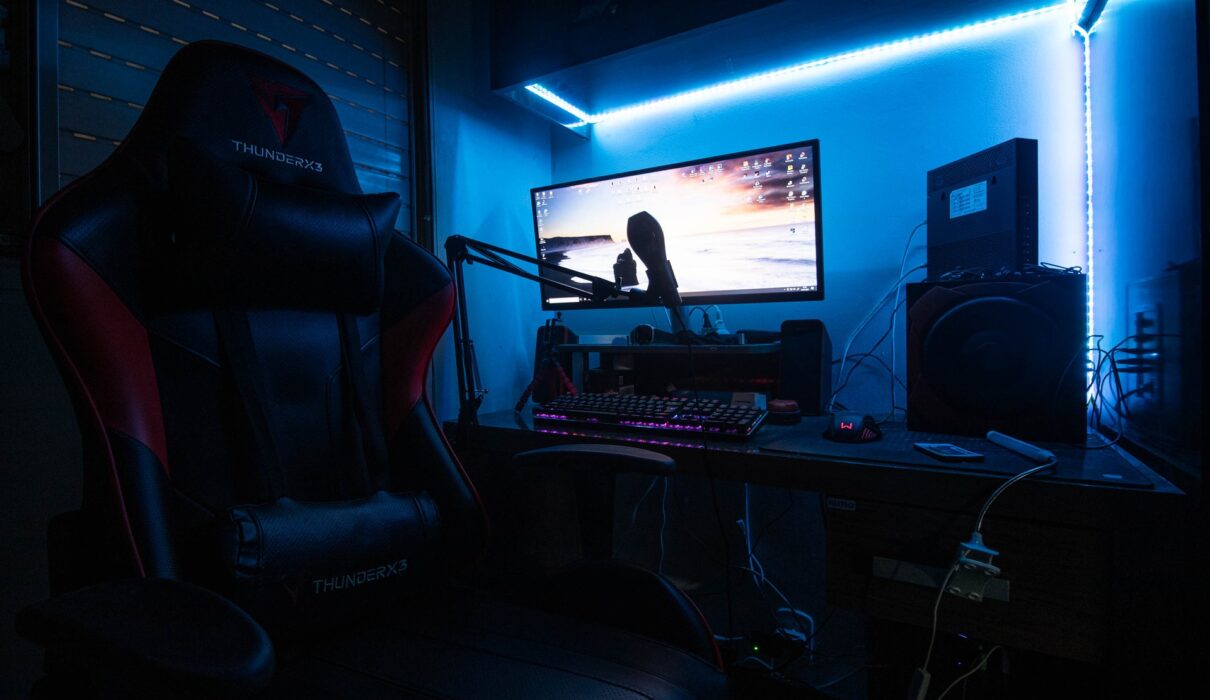In today’s digital age, it’s common to wind down by scrolling on our phones, watching TV, or finishing up tasks on our laptops. According to the National Sleep Foundation, around 90% of Americans report using electronic devices in their bedroom within an hour of going to bed. While it may feel relaxing, this habit may actually be disrupting our sleep cycles. The reason? Blue light, an essential type of visible light emitted by all modern electronic screens, can interfere with the body’s sleep processes.
What is Blue Light?
Blue light is part of the visible light spectrum that naturally comes from the sun, but it’s also emitted by digital devices like phones, tablets, and computers. During the day, blue light helps keep us alert and attentive, which is helpful for productivity and focus. However, exposure to blue light in the evening can create challenges when it’s time to wind down and prepare for sleep.
How Blue Light Affects Sleep
Our sleep-wake cycle is largely regulated by two key biological processes: our circadian rhythm and Process S (homeostatic sleep drive).
- Circadian Rhythm: This is our body’s 24-hour “internal clock,” which tells us when it’s time to sleep and wake up. It’s closely linked to light exposure, particularly blue light from the sun, which signals the brain that it’s time to be alert. When blue light hits the retina, it triggers a reduction in melatonin, a hormone that promotes sleep.
- Process S: This process builds up sleep pressure over the course of the day. The longer we stay awake, the stronger this drive to sleep becomes. However, light exposure, especially in the evening, can delay the sleep drive, making it harder to fall asleep and reducing sleep quality.
The Role of Melatonin
Melatonin is known as the “sleep hormone” because it promotes sleep by signaling to the body that it’s time to rest. As night approaches, melatonin production ramps up. However, exposure to blue light can delay and even suppress this release, tricking the brain into thinking it’s still daytime. This results in delayed sleep onset and can make it difficult to get restful sleep.
How Evening Blue Light Exposure Disrupts Sleep
When we expose ourselves to blue light in the evenings, several negative impacts on our sleep and health can occur:
- Circadian Rhythm Misalignment: Blue light in the evening pushes our natural rhythm later, disrupting the alignment between our biological clocks and the environmental day-night cycle. This misalignment is linked to circadian rhythm sleep disorders, which can have widespread impacts on both physical and mental health.
- Decreased Sleep Quality: Lower melatonin levels and circadian disruptions lead to poorer sleep quality and decreased overall sleep duration. Studies show that individuals exposed to blue light before bed often report increased difficulty falling asleep and wake up more frequently during the night.
- Reduced Alertness and Productivity: Poor sleep from blue light exposure can impair concentration, mood, and cognitive function. Over time, chronic sleep disruption can also lead to more serious health concerns, including cardiovascular problems and metabolic issues.
Evidence-Based Solutions to Mitigate Blue Light Exposure
To minimize the impact of blue light on sleep, consider the following strategies:
- Limit Screen Time Before Bed: Aim to avoid screens at least 1-2 hours before bedtime. Studies show that this can help the body wind down naturally and prepare for sleep.
- Use Blue Light Filters: Many devices now offer “night mode” settings that reduce blue light emissions by shifting the screen to warmer tones. Special blue light-blocking glasses can also be used if screen time is necessary.
- Increase Bright Light Exposure During the Day: Getting exposure to natural light during the day can help strengthen the circadian rhythm, making you less vulnerable to the effects of artificial blue light at night.
- Consider Melatonin Supplements (with Professional Guidance): Some individuals find melatonin supplements helpful, especially if their sleep schedule has already been disrupted by blue light exposure. However, it’s important to use these supplements with caution and under medical supervision, as timing and dosage can affect how well they work.
The Bottom Line
Our bodies are naturally tuned to the rhythms of sunlight, but our digital lifestyles have introduced new challenges. Reducing exposure to blue light in the evening is a simple yet powerful step to improve sleep and overall health. So, consider swapping out your screen for a book, or dimming your lights to a warmer tone as part of your bedtime routine. With small adjustments, you can protect your sleep and wake up feeling refreshed and ready for the day ahead.
Image Credits: Photo by Maurício Mascaro

